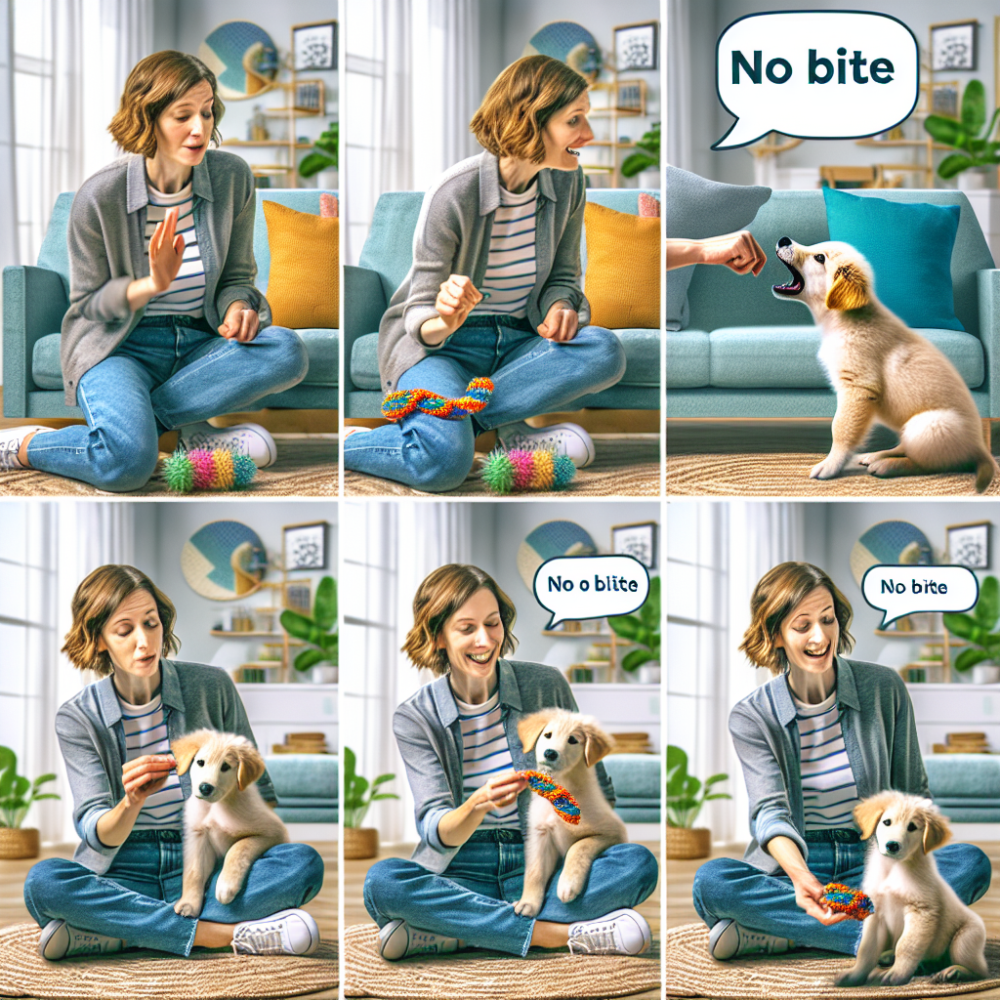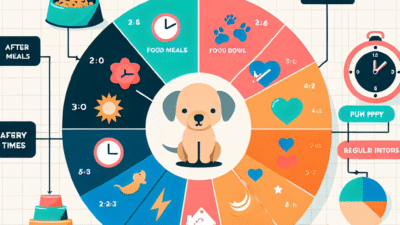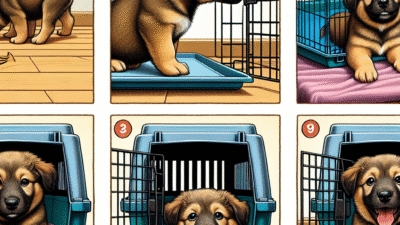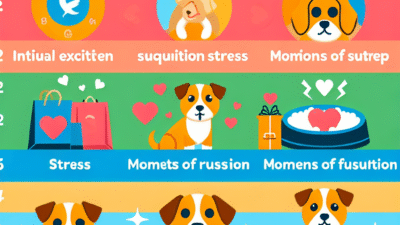Bringing home a puppy is one of life’s great joys, but those sharp little teeth can quickly turn cuddles into cries. If you’re wondering how to stop puppy biting fast (without hurting your bond), you’re not alone. Puppy nipping is a common phase, but it’s important to address it early and effectively—without causing fear or damaging trust.
This guide will teach you why puppies bite, how to respond in the moment, and what long-term strategies work best. Whether you’re dealing with a teething eight-week-old or an overly playful four-month-old, we’ve got you covered.
Why Do Puppies Bite in the First Place?
Before jumping into solutions, it’s important to understand why your puppy is biting in the first place. Puppies explore the world with their mouths, much like human babies. Biting and mouthing are normal behaviors during development, especially between 6 to 12 weeks of age.
Common reasons puppies bite include:
- Teething pain: Just like babies, puppies go through a teething phase. Chewing soothes their sore gums.
- Exploration: Puppies are naturally curious, and they use their mouths to explore new textures and sensations.
- Play behavior: In the litter, puppies bite their siblings as part of play. They don’t yet know how hard is too hard.
- Overstimulation or frustration: Puppies may nip when they’re tired, overstimulated, or trying to communicate discomfort.
Understanding the root cause will help you apply the right techniques to stop biting quickly and kindly.
How to Stop Puppy Biting Fast (Without Hurting Your Bond)
Let’s dive into practical, positive methods that work fast—without using fear, pain, or punishment.

1. Use a Consistent “Ouch!” or Yelp
When your puppy bites too hard, let out a sharp “Ouch!” or mimic a high-pitched yelp. This mimics the feedback they’d get from a littermate and helps them learn bite inhibition.
Important: Don’t yell angrily or scare your puppy. The goal is to startle, not to punish.
2. Immediately Stop Play and Withdraw Attention
If your puppy bites again, stop the interaction. Stand up, turn away, and ignore them for 30–60 seconds. This teaches that biting ends fun.
Dogs thrive on attention. Even negative attention can reinforce the behavior. Withdrawing it sends a clear message.
3. Redirect to a Toy or Chew
Always have a soft chew toy or puppy-safe bone nearby. When you sense your puppy is about to bite or right after they do redirect their mouth to the toy.

This teaches them what’s appropriate to chew and satisfies their natural need to bite.
4. Reward Calm, Gentle Behavior
Reinforce the behavior you want. When your puppy licks you gently or interacts without biting, praise them warmly or give a small treat. This helps them associate non-biting behavior with positive outcomes.
5. Use Timeouts When Necessary
If your puppy becomes too mouthy and overstimulated, a short timeout in a playpen or crate can help them reset. Make sure they have a chew toy inside, and keep the timeout brief (just a few minutes).
6. Avoid Rough Play That Encourages Biting
Games like tug-of-war or wrestling can overstimulate some puppies and lead to biting. Instead, opt for fetch, hide-and-seek with treats, or puzzle toys to channel their energy more constructively.
What Should I Do to Stop My Puppy Biting Me?
If your puppy is specifically targeting you, focus on setting clear boundaries. Puppies often test the limits with their primary caregivers, so consistency is key.
- Keep your hands away: Don’t tempt fate by waving your fingers around your puppy’s face.
- Teach a cue like “Gentle”: Use this phrase consistently when offering treats or petting.
- Monitor overstimulation: Puppies are more likely to nip when they’re overly excited or tired. Schedule naps and quiet time.
Should I Hold My Puppy’s Mouth Shut When Biting?
No, you should never hold your puppy’s mouth shut as a form of discipline. This outdated method can lead to fear, anxiety, and even aggression. It may stop the behavior in the moment, but it damages your bond and doesn’t teach your puppy what to do instead.
Positive reinforcement and redirection are far more effective and humane strategies.
How Do I Get My Puppy to Stop Biting ASAP?
If you’re desperate for a solution, here’s a quick action plan that combines all the elements we’ve covered:
- Keep a chew toy in every room.
- Use a high-pitched “Ouch!” when bitten.
- End play immediately after biting.
- Redirect to a toy or frozen treat.
- Reward calm, non-biting interaction.
- Limit overstimulating play sessions.
- Stick to a consistent daily routine that includes naps.
Consistency is your best friend. Your puppy won’t learn overnight, but you’ll see progress within days if everyone in the household follows the same steps.
At What Age Does a Puppy Usually Stop Biting?
Most puppies begin to outgrow biting around 6 to 8 months of age. However, this varies based on breed, environment, and training consistency. Small breeds may mature faster, while larger working breeds may take longer to control their impulses.
Here’s a general timeline:
| Age | Expected Behavior |
|---|---|
| 8–12 weeks | Teething, mouthing, playful nipping |
| 12–16 weeks | Learning bite inhibition, testing boundaries |
| 4–6 months | Improved control, less frequent biting |
| 6–8 months | Major biting behaviors fade with consistent training |
Remember, consistency and patience are key. If biting persists beyond 8 months, consult a certified trainer or behaviorist.
Helpful Products to Curb Puppy Biting
Having the right tools can make a big difference. Here are some recommended items:
- Frozen teething toys: Great for soothing sore gums.
- Soft plush toys: Ideal for redirection during play.
- Puzzle feeders: Help channel mental energy and prevent boredom biting.
- Treat-dispensing toys: Keep your puppy engaged and reinforce good behavior.
Always supervise your pup with any toy to ensure safety.
Real-Life Success Story
“When we first brought Max home at 9 weeks, he was a nipping machine. My kids were scared to play with him. We followed a no-bite protocol with yelps, toy redirection, and lots of praise. Within two weeks, the biting decreased significantly. By four months, it was almost gone. Now, at seven months, he’s the gentlest dog we’ve ever had.” – Sarah G., Denver, CO
FAQs About Puppy Biting
Q1: Why does my puppy bite more in the evening?
This is known as the “puppy witching hour.” Puppies often get a surge of energy in the evening, especially if they haven’t had adequate naps or mental stimulation. Try scheduling a calm walk or quiet playtime before this period begins.
Q2: Is it normal for my puppy to growl when biting?
Yes, growling during play is usually normal. It’s a form of communication. However, if the growling seems aggressive or is paired with a stiff body and intense eye contact, it’s worth consulting a professional.
Q3: Can obedience training help reduce biting?
Absolutely. Teaching basic cues like “Sit,” “Stay,” and “Leave it” gives your puppy structure and helps you redirect them more effectively. Training builds your bond and reduces unwanted behaviors.
Q4: Should I use bitter spray or deterrents?
Some owners find bitter sprays helpful for deterring chewing on furniture or hands. However, they should never replace training. Use sprays minimally and focus on teaching your puppy what to do instead.
Q5: When should I get professional help?
If your puppy’s biting is severe, persistent beyond 6–8 months, or accompanied by aggression or fear, consult a certified dog trainer or veterinary behaviorist. Early intervention can prevent long-term issues.
Final Thoughts
Learning how to stop puppy biting fast (without hurting your bond) is all about balance, correcting unwanted behavior while nurturing trust. Your puppy isn’t trying to be naughty; they’re trying to communicate and learn.
With patience, consistency, and a lot of redirection, you’ll soon have a well-mannered pup who knows how to play gently. And the best part? You’ll strengthen your relationship in the process.





